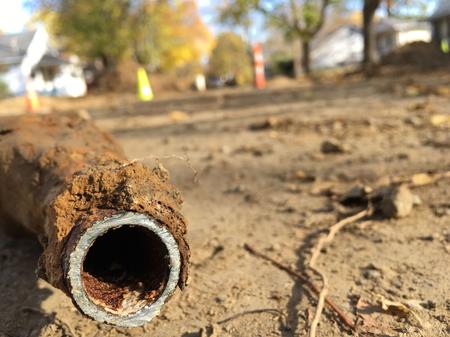Michigan Health Officials say Flint Water Switch had No Impact on Infant Deaths
Michigan officials find tainted water in Flint did not harm pregnancies, say infant mortality always higher in Flint.

The Flint Water Plant water tower in Flint, Mich.

A new study by Michigan’s Health and Human Services Department finds no significant changes in pregnancies or infant mortality in Flint after the city began using its river as a source of drinking water.
Health department officials say they are examining data about Flint from state records in consultation with groups including the Centers for Disease Control and Prevention.
They say the records show no real change in the rate of stillbirths or infant mortality during the time Flint switched to using the city’s river as a water supply without properly treating pipes to prevent lead corrosion.
The findings appear to contradict a report from university researchers in Kansas and West Virginia who claim there was a drop in pregnancies in Flint when the water supply was changed.
But Michigan Health Department spokesperson Angela Minicuci says the two studies looked at different aspects of the situation.
“We looked at the actual outcomes. Did it impact the number of babies that died prior to being born? The number of babies that were born too early? Whereas they looked at fertility rates,” she says.

Minicuci adds that the risk of stillbirths and babies born with low birth weight is consistently higher in Flint than in cities like Detroit or Saginaw.
Some Michigan officials have been charged with crimes in connection with the water crisis in Flint.
